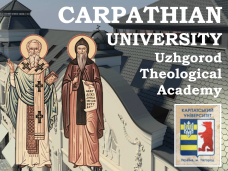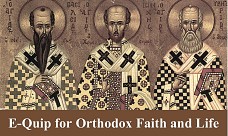Decision science brings together special expertise in decision support systems, enterprise information systems, enterprise integration, management science, business statistics, operations/technology management, and operations. This article series has been extracted from the lecture notes of Professor Grace M. DiLeo. In addition to holding a Doctor of Science [in Law and Economy with Specializations in Business Law, Economics, Management, and Finance], Doctor of Philosophy [in Business and Public Administration], Master of Business Administration [in Finance], and Bachelor of Commerce [in Accounting], Professor DiLeo has nearly two decades of academic and practical expertise in the field of decision science. The topics presented in the series are related to business, finance, management, entrepreneurship, and decision sciences, including core knowledge, competencies, tools, techniques, and critical skills. Ultimately, articles are directed toward the application of quantitative methods to real-world problems through modern methodologies adopted from statistics, operations research, and management science. This series is an excellent resource for M.B.A. students.
|
English
Article 01: Affirmative Action for the future Article 02: An analysis of Management by Whose Objectives Article 03: An analysis of The Best-Laid Incentive Plans Article 04: An analysis of They’re Not Employees, They’re People Article 05: Business ethics Article 06: Conducting an analysis of variance Article 07: Developmental organizational change Article 08: Essential skills and qualifications for overseas assignments Article 09: Financial management: The role of governmental systems Article 10: Inflation, deficit, and resource managemenet Article 11: Introduction to public administration Article 12: Public agencies and ethical obligations Article 13: Puerto Rico: An island in crisis Article 14: Puerto Rico E-Government Article 15: Spin doctors Article 16: The components of an evaluation process Article 17: The death of Filiberto Ojeda Ríos Article 18: The evolution of affirmative action Article 19: The leadership of Rudolph W. Giuliani Article 20: The Moldy Grapes ‘whistle-blowing’ case Article 21: Public debate and Affirmative Action Article 22: Publicity vs. advertising Article 23: The War on Poverty Article 24: The War on Poverty and Affirmative Action Article 25: Transformational organizational change Article 26: Transitional organizational change |
Español
Article 27: Bases psicosociales del comportamiento organizacional Article 28: Finanza internacional Article 29: Presupuesto y financiamiento público en las operaciones fiscales municipales Article 30: Principios de administración pública Article 31: Sistema de fondos federales en el gobierno municipal |
Send your gift of $20.00 [USD] to the St. Gregory Nazianzen Institute General Fund
and receive a free copy of any article in this series.
Coaching as a profession is a relatively recent development and includes practitioners from a wide variety of disciplines and backgrounds, including consulting, Human Relations (HR) and Organizational Development (OD), training, sports, education, and philosophy. Practitioners also proceed from any number of disciplines such as industrial/organizational (I/O) psychology, counseling psychology, clinical psychology, and social psychology (see Institute of Coaching for additional information). Given the varied backgrounds, experiences, and perspectives that coaches bring, it is not surprising to see a lack of consensus about definitions, methods, and techniques. Notwithstanding, the International Coach Federation (ICF) defines coaching as: "Partnering with clients in a thought-provoking and creative process that inspires them to maximize their personal and professional potential" (see ICF Code of Ethics). Although coaching is informed by psychology, it is not a psychotherapeutic treatment for disorders but rather focuses on developing client strengths and moving towards client stated goals. This article series, extracted from the lecture notes of The Rt. Revd. Dr. Andrew Vujisić, (in the world, Dr. Zoran Vujisić), presents topics related to executive and life coaching, including core knowledge, reflection, competencies, tools, techniques, and critical skills. Ultimately, the various articles are directed toward the integration of the conceptual and theoretical knowledge of coaching with practical application to the workplace and/or a chosen sphere of activity.
|
Article 01: An analysis of the Rogerian model Article 02: The benefits/risks of using the Rogerian model in coaching Article 03: The benefits of the coaching contract Article 04: Boundary abuse disorer (BAD) Article 05: The coaching competencies framework Article 06: Coaching qualities and skills Article 07: Coaching's similarities/differences with counseling/therapy Article 08: Coaching skills, positive regard, and empathic understanding Article 09: Coaching Winnie-the-Pooh Article 10: The coach's responsibility in the psychological domain Article 11: The coach's signature presence Article 12: Creating a professional development workplan Article 13: Critical awareness of the role of a life coach Article 14: Critical awareness of the role of an executive coach Article 15: A critical review of the purpose/role of executive coaching Article 16: Development as a life coach through reflective commentary Article 17: Design/implementation of anexecutive coaching program Article 18: Executive coaching skills that facilitate client change Article 19: 'Flow' in the coaching process Article 20: Implementing a personal development plan (PDP) |
Article 21: The importance and application of supervision for coaches Article 22: The key requirements for a successful coaching practice Article 23: The legal, ethical, and diversity implications for life coaching Article 24: Models of therapy with a potential to inform coaching Article 25: The organizational context for executive coaching Article 26: A personal coaching journey Article 27: The ethical and legal responsibilities of an executive coach Article 28: The purpose/process of raising client awareness in coaching Article 29: The purpose, role, and application of life coaching Article 30: Rational emotive behavior therapy and coaching Article 31: Reflections on cognitive-behavioral therapy and coaching Article 32: Reflections on Gestalt therapy and coaching Article 33: The role of the the Rogerian model in coaching Article 34: Signature presence: aligning principles, values, and actions Article 35: Socratic questioning Article 36: 'Stuckness' in the coaching process Article 37: Specific, measurable, achievable, realistic, time-bound goals Article 38: Values the coach brings to coaching |
Send your gift of $5.00 [USD] to the St. Gregory Nazianzen Institute General Fund
and receive a free copy of any article in this series.
According to Seligman and Csikszentmihalyi (2001), Positive Psychology is "the scientific study of positive human functioning and flourishing on multiple levels that include the biological, personal, relational, institutional, cultural, and global dimensions of life". Positive Psychology is concerned with eudaimonia, or "the good life", (i.e., a reflection about what holds the greatest value in life and the factors that contribute the most to a well-lived and fulfilling life). Positive Psychology began as a new domain of psychology in 1998 when Martin Seligman chose it as the theme for his term as president of the American Psychological Association. The model builds on the humanistic movement, which encouraged an emphasis on happiness, well-being, and positivity. This article series presents the following topics related to Seligman's Positive Psychology.
Article 1: Positive psychology: The other lung
Article 2: Love, hope, gratitude, and forgiveness
Article 3: Motivation and meaning
Article 4: Pleasures and gratifications
Article 5: Positive emotion, optimism, and illness
Article 6: Stress inoculation and spirituality
Article 7: Work, leadership, institutions, and culture
Send your gift of $5.00 [USD] to the St. Gregory Nazianzen Institute General Fund
and receive a free copy of any article in this series.
Modern psychology is a virtual marketplace reflecting a myriad of differing popular philosophies of life. Each psychology’s interpretive system sets up categories and labels that project, ('with no right way up'), onto the globe of reality like a Dymaxion map. Norms and ideals set standards against which diagnoses are made, and psychotherapies aspire to alter behavior, conduct, habits, and ultimately lifestyle. Even psychologists lament the aparent irresolvable chaos in the field. Robert Coles (1995, xxv), in The minds fate: A Psychiatrist looks at his profession, writes: "This is... a ‘field’ all too prone toward ideological splits and antagonisms, if not outright internecine war." No bridging theory reconciles conflicting and competing views; and eclecticism is the order of the day. Eclecticism, however, only offers a pragmatic way to keep going, but is in itself, an intellectual counsel of despair. This article series, extracted from the lecture notes of The Rt. Revd. Dr. Andrew Vujisić, (in the world, Dr. Zoran Vujisić), offers a careful presentation and anylysis, and a penetrating critique and evaluation from an Eastern Christian perspective of the psychologies listed below. Each article begins with a summary of the historical background and key figures of the school, (model/approach), followed by its key concepts, and concludes with an evaluation as to whether the psychology/psychotherapy is consistent with Orthodox cosmology, soteriology, and phronema. The ultimate purpose is to provide the layperson with an overview that will allow him/her to make a spiritually intelligent decision regarding model's use.
|
Article 01: Activity-oriented theory Article 02: Analytical psychology Article 03: Anti-psychiatry Article 04: Anomalistic psychology Article 05: Associationism Article 06: Behavior therapy Article 07: Behavioral genetics Article 08: Bio-energetics Article 09: Biological psychology Article 10: Biopsychosocial therapy Article 11: Client-centered therapy Article 12: Cognitivie psychology Article 13: Cognitive-behavioral psychology Article 14: Cultural-historical psychology Article 15: Depth psychology Article 16: Descriptive psychology Article 17: Developmental psychology Article 18: Eco-psychology Article 19: Ecological psychology Article 20: Ecological systems theory |
Article 21: Ego psychology Article 22: Environmental psychology Article 23: Evolutionary psychology Article 24: Existential psychology Article 25: Experimental analysis Article 26: Functionalism Article 27: Gestalt therapy Article 28: Grounding techniques in therapy Article 29: Humanistic psychology Article 30: Individual psychology Article 31: Industrial psychology Article 32: Jungian theory Article 33: Liberation psychology Article 34: Logotherapy Article 35: Multimodal therapy Article 36: Organismic psychology Article 37: Organizational psychology Article 38: Phenomenological psychology Article 39: Philosophical therapy Article 40: Positive psychology |
Article 41: Process psychology Aricle 42: Psychoanalysis Article 43: Psycho-history Article 44: Radical behaviorism Article 45: Rational emotive therapy Article 46: Social psychology Article 47: Strength-based practice Article 48: Structuralism Article 49: Systems psychology Article 50: Transactional analysis Article 51: Transpersonal psychology |
Send your gift of $5.00 [USD] to the St. Gregory Nazianzen Institute General Fund
and receive a free copy of any article in this series.













